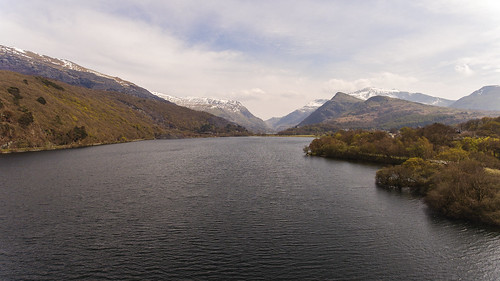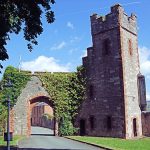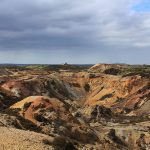Mount Snowdon
The Snowdonia National Park is expansive, and the associated coastal areas are too. Snowdonia itself is larger than the National Park, including a coastline that stretches for 200 miles. Dubbed a land of contrasts, the park and nearby areas include impressive mountainous peaks (with views to match), Sahara-like sand at the Black Rock Sands, and even the odd castle.

Mount Snowdon is the main attraction in the Snowdonia National Park. Known as Yr Wyddfa in Welsh, it is 1,085 metres above sea level and is the highest mountain in the British Isles. Thousands of people visit Snowdonia each year, to walk up it or catch the iconic mountain train.
There are lots of walking routes and as long as the weather is suitable, you can ascend Snowdon all year round. The visitor centre – Hafod Eryri – at the summit of Snowden offers a dry, warm place to catch your breath, grab some refreshments, and admire the views.
About Snowdonia National Park
The Snowdonia National Park was established in 1951 as only the third park of its kind after the Peak District and Lake District had come before it. The park covers 827 miles including 37 miles of the extensive coastline falling inside the designated park area. The park makes up part of the counties of Conwy and Gwynedd. Almost 70 percent of the park is privately owned with the rest being owned by the National Trust, National Park Authority, Natural Resources Wales, and other interests.
As of 2011, approximately 26,000 people live within the boundaries of the park. The park is also unusual because it possesses a hole in its official boundary – like a donut – for Blaenau Ffestiniog, a town with a quarrying history.
Things to Do and See
It’s possible to ride on a small railway, take a boat trip, land on an island, or visit an old cottage. And there’s more.
Portmeirion – This picture-perfect village was designed by Sir Clough Williams-Ellis. The architecture is in a colourful Italianate style, juxtaposed by woodlands, the odd estuary, and clifftops. There are plenty of walks with Portmeirion as your starting point.
Bardsey Island – The National Trust owns this little island. It has a lighthouse, some lovely habitats for the wildlife, and a small intrepid population too. If you’re lucky, you may spot either seals or dolphins in the waters below. The rugged landscape is ideal to ramble over. Bring good footwear!
Ogwen Valley – This valley is one of the standouts within the park. Its natural beauty and valley walls carved out from glaciers from thousands of years ago are breath-taking. Some paths have been created and then there are rocky outcrops to navigate too.
Llechwedd Slate Caverns – These caverns first opened in the 1970s and have been winning awards ever since. They stretch some 500 feet below the surface originally with the use of a cable railway. The latter derives from its history of slate mining with steeper declines than you’ll find anywhere in Europe.
Also, one for both adults and kids, there’s the Zip World Bounce Below to enjoy or the Zip World Titan for a truly epic zip lining experience that’s bigger than anything Europe has to offer. There you’ll discover several zip lines running side-by-side to share your screams with friends or a partner.
Trefriw Woollen Mills – The mill is one of the few still operational in Wales. Its hydro-electric turbines are an impressive sight. The place has a history that goes back one and a half centuries, so it’s a fascinating one to visit.


